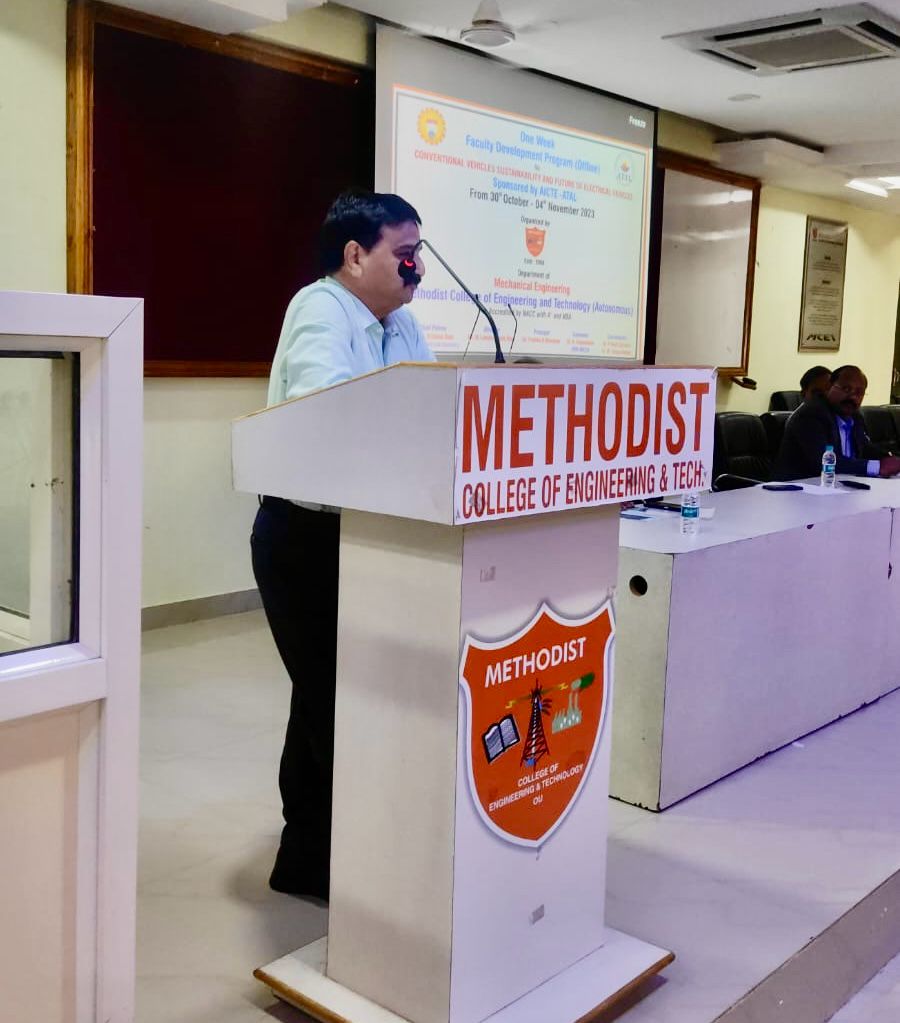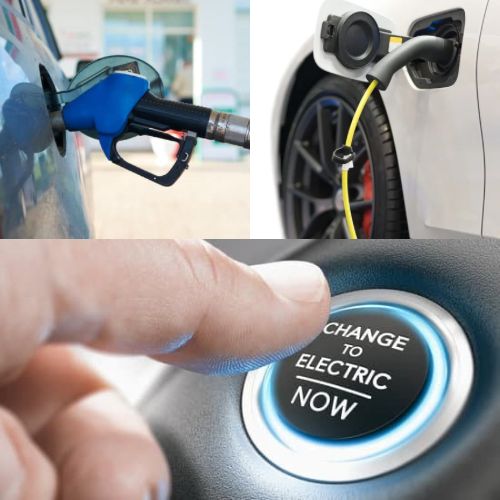Hyderabad(Nov, 4) : The Department of Mechanical Engineering at the Methodist College of Engineering and Technology, Hyderabad, recently conducted a successful one-week ATAL Faculty Development Program (FDP) titled “Conventional Vehicle Sustainability and Future of Electric Vehicles.” Running from October 30 to November 4, 2023, the program brought together over 50 participants, all faculty members from various academic institutions across India.
The primary objective of this FDP was to enhance the knowledge and skills of the participating faculty members by facilitating interactions with experts from both the industry and academia. The program aimed to equip participants with the latest developments in the field of vehicle sustainability and electric vehicles.

The inaugural session featured Prof. Sriram Venkatesh, the Principal of Osmania University’s College of Engineering, who discussed environmental concerns, energy storage methods, the role of internal combustion engines, and the future of electric vehicles. Dr. G. Srinivas Sharma from MVSR Engineering College elaborated on alternate fuels, including the potential of solar hydrogen as a future fuel source. Prof. V. Uma Maheswar from Osmania University explored technological trends in the global automotive industry and the digital revolution in the sector.

Prof. M. Lakshmipathi Rao, the Director of the Methodist College of Engineering and Technology, shared insights from his vast experience and journey in the field, focusing on the National Education Policy (NEP). Prof. Prabhu G. Benakop, the Principal of the college, highlighted the transformative power of modern technology and the crucial role of FDPs in advancing theoretical and practical knowledge.
K. Krishna Rao, the Correspondent of the college, commended Dr. Ravi Chander, Dr. M. Uday Kumar, and the entire Mechanical Department for their successful organization of the ATAL FDP.
The program also delved into the importance of electric vehicles (EVs) in reducing greenhouse gas emissions and the exposure of personal transportation to tailpipe emissions. It addressed concerns related to problem-shifting and underscored the significance of considering vehicle production when comparing conventional and electric vehicles. The resource persons for the program were highly experienced faculty members from prestigious institutes across India.




